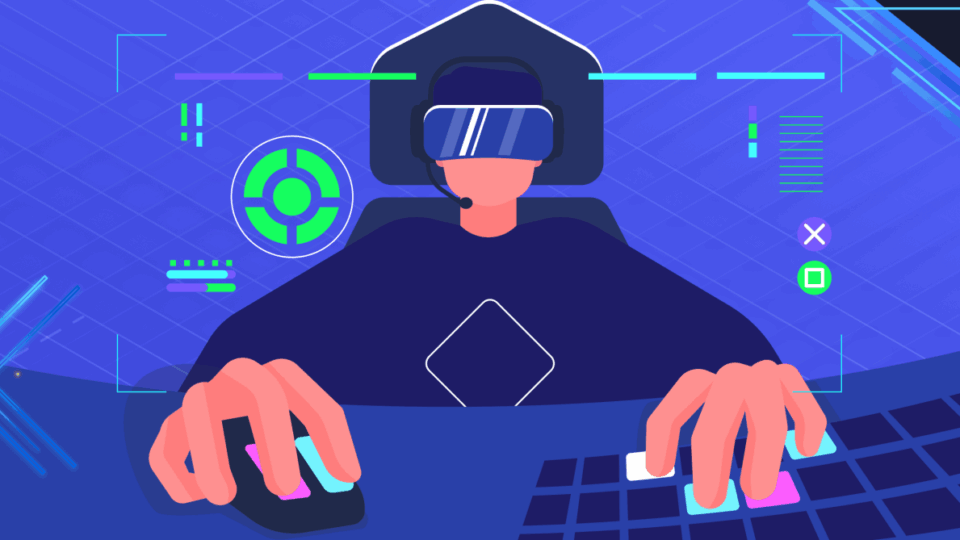
Mind and Machine: How AI Companions Are Changing Online Gaming
Artificial intelligence has always been a part of gaming, but in 2025, it’s no longer confined to predictable enemy patterns or scripted NPCs. Today, AI has evolved into something far more sophisticated — intelligent companions, teammates, and even friends that can think, learn, and respond like real people. Online gaming is being transformed by this new wave of AI-driven characters who blur the line between human interaction and machine behavior. The result is a gaming experience that’s more personal, dynamic, and emotionally engaging than ever before.Visit (무료슬롯) for more details.
The Evolution of AI in Gaming
In the early days of gaming, AI simply meant computer-controlled opponents that followed pre-set routines. They added challenge but lacked personality. Over time, developers began creating more advanced systems capable of adapting to player behavior, as seen in games like Left 4 Dead or Halo. But the real revolution began when machine learning entered the scene. Instead of relying on fixed scripts, AI could now observe, predict, and evolve — turning virtual characters into entities capable of understanding context, emotion, and cooperation. This shift laid the groundwork for the rise of AI companions in modern online gaming.
AI Companions and Emotional Connection
One of the most significant impacts of AI in gaming is the creation of emotional bonds between players and virtual characters. In story-driven online experiences, AI companions can now react naturally to a player’s actions, tone, and decisions. Games like Cyberpunk 2077: Phantom Liberty and Starfield have introduced AI allies that remember your choices, hold conversations, and even express nuanced emotions. Some games go further, using voice recognition and natural language processing to allow players to speak directly with their AI partners. This creates a sense of companionship that feels genuinely human, turning a solitary gaming experience into a shared emotional journey.
Teamwork and Adaptive Gameplay
In online multiplayer games, AI companions have become valuable teammates. They fill gaps in team composition, assist with coordination, and learn from human strategies. Modern AI systems can analyze real-time player performance, adapt tactics, and even anticipate actions based on past gameplay. For instance, in cooperative shooters or MMORPGs, AI teammates can adjust difficulty levels dynamically, provide cover, or offer support based on the player’s preferences. This adaptability ensures that every session feels smooth and personalized, whether you’re playing solo or with others. The days of clumsy, unhelpful NPC allies are fading fast — today’s AI partners are strategic, supportive, and often indispensable.
Social AI: Companions Beyond Combat
AI companions aren’t limited to combat or gameplay assistance; they’re also becoming central to social interaction. In virtual worlds like VRChat or metaverse platforms, AI-driven avatars act as hosts, guides, or even friends. Some systems use generative AI to create unique personalities that evolve over time based on how you interact with them. Players can have conversations, share experiences, or simply enjoy the company of an AI friend who understands context and emotion. These digital relationships raise fascinating questions about companionship, identity, and the human need for connection — particularly in online spaces where loneliness can sometimes prevail.
The Role of AI in Storytelling
AI is also transforming narrative design in online games. Instead of following a linear script, AI-driven storytelling adapts to player choices, generating unique dialogue and events for each individual. This means no two players experience the same story in exactly the same way. Advanced systems analyze emotional tone, decision patterns, and moral choices to create evolving relationships with NPCs. This level of personalization makes every journey feel deeply personal, giving players a sense of agency that static narratives can’t match. In the future, we may see entire online worlds shaped collaboratively by player actions and AI improvisation.
Ethical and Emotional Boundaries
As AI companions grow more lifelike, they also raise important ethical and emotional questions. Can players form genuine emotional attachments to machines? What happens when an AI companion feels too real? Developers must navigate complex psychological territory to ensure these relationships remain healthy and transparent. There are also concerns about data privacy, as AI systems often rely on analyzing speech and behavior to learn. Maintaining boundaries between emotional immersion and manipulation is crucial. Games must balance realism with responsibility, ensuring players understand where the line between fiction and sentience lies.
AI as a Creative Partner
Beyond gameplay, AI is becoming a creative collaborator in the gaming industry itself. Developers now use AI to generate art, design environments, write dialogue, and even compose music. Players, too, are beginning to interact with AI tools within games to create their own stories, missions, or worlds. This participatory model empowers players to become co-creators, blurring the line between developer and audience. In multiplayer environments, this collaborative creativity fosters community and innovation, as players share AI-generated content that continuously expands the world around them.
The Future of Human-AI Interaction in Gaming
Looking ahead, AI companions are likely to become even more integrated into online gaming. With advances in emotional recognition, voice synthesis, and natural conversation, future AI allies may be indistinguishable from real teammates. Imagine a world where you log into a game, and your AI companion greets you by name, remembers your last mission, and helps you form strategies for your next adventure. This isn’t science fiction anymore — it’s the direction the gaming industry is heading. These intelligent companions could redefine friendship, cooperation, and storytelling within digital worlds.Visit (무료슬롯) for more details.
Conclusion
The rise of AI companions marks a new era in online gaming — one where the boundaries between player and machine, fiction and reality, continue to blur. No longer just programmed tools, AI allies are evolving into partners, storytellers, and emotional anchors within digital worlds. They adapt, learn, and connect in ways that make gaming more human, even when no human is there. As technology progresses, these companions will not only change how we play but also how we feel while playing. The future of gaming is intelligent, interactive, and deeply personal — where mind and machine unite to create experiences that are alive in every sense.











Leave a Reply